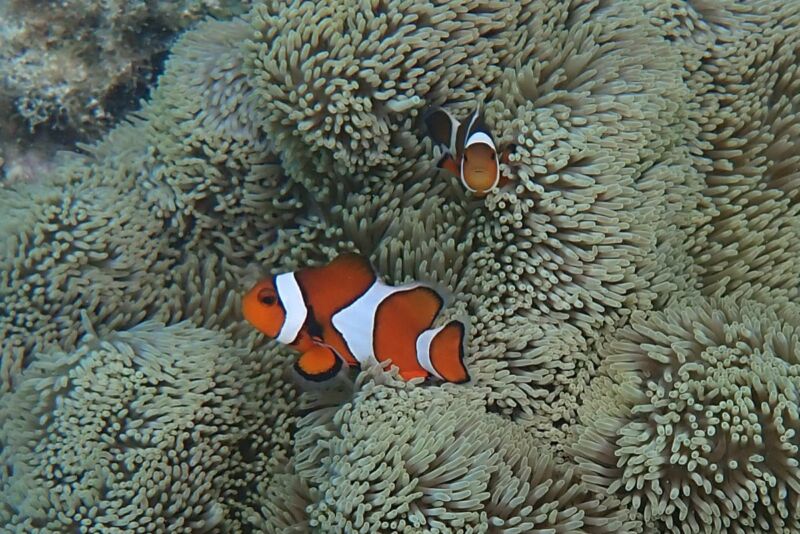Enlarge / Clown anemonefish (Amphiprion ocellaris) seem to recognize different species of clownfish by counting white stripes. (credit: Kina Hayashi)
Many people tend to think of clownfish, with their distinctive white bars against an orange, red, or black background, as a friendly sort of fish, perhaps influenced to some extent by the popular Pixar film Finding Nemo. But clownfish can be quite territorial when it comes to defending their host anemone from intrusion by others, particularly those from their own species. A new paper published in the Journal of Experimental Biology describes how clownfish determine if a fish approaching their home is friend or foe by “counting” the number of white bars or stripes on their bodies.
As previously reported, mathematical ability is often considered uniquely human, but in fact, scientists have found that many animal species—including lions, chimpanzees, birds, bees, ants, and fish—seem to possess at least a rudimentary counting ability or number sense. Crows can understand the concept of zero. So can bees, which can also add and subtract, as can both stingrays and cichlids—at least for a small number of objects (in the range of one to five). Some ants count their steps.
This so-called “numerosity” simply refers to the number of things in a set, according to cognitive psychologist Brian Butterworth, an emeritus professor at University College London and author of Can Fish Count? What Animals Reveal About Our Uniquely Mathematical Minds. It has nothing to do with reasoning or logical mathematical intelligence. This is information that will be in the environment, and counting animals must have some mechanism for extracting this numerical information from the environment. But it nonetheless makes for a fascinating field of study.
Read 7 remaining paragraphs | Comments

